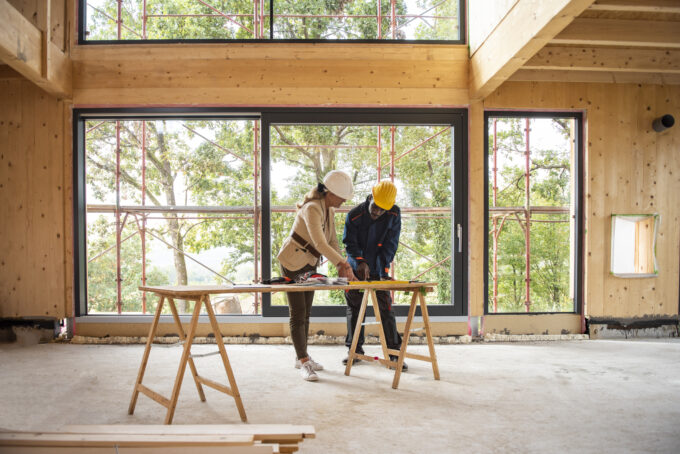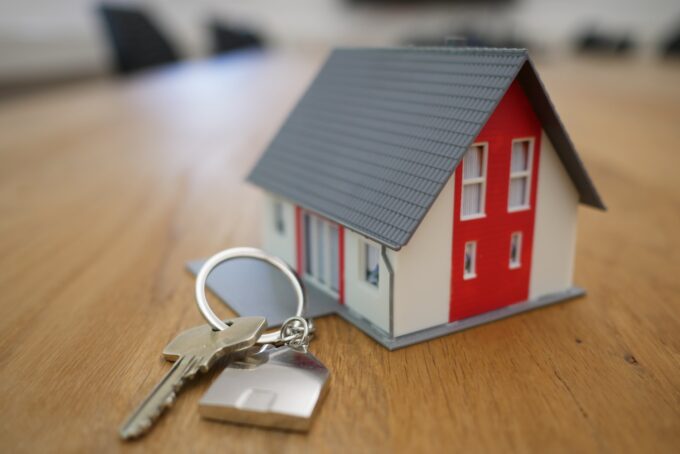Buying a home, especially if it’s your first home, is a whole new mix of feelings. There’s the excitement of finally having a place to call your own and more space to spread out in and decorate. Then the sense of accomplishment of this major milestone that you worked hard toward. For all intents and purposes, you did a thing—a really, really big thing! But of course, there are also the responsibilities that come along with it. If something breaks, like the air conditioning or an appliance, it’s on you to figure out how to fix it. More space means more to clean and organize. But the reality is, owning a home shouldn’t be the end-game, it’s just the beginning. There’s plenty to think about in the long term — here are a few things you should consider as a first-time homeowner.

1. Maintenance Costs
Owning a home introduces a slew of ongoing maintenance responsibilities, which can catch unsuspecting homeowners off-guard if not adequately prepared. Ultimately, it breaks down into three major categories: routine, repair, and seasonal.
Budgeting for these expenses is important since some can sneak up on you, often in the most inconvenient times, like your AC deciding to give up mid-August. Establishing a maintenance fund early on can help mitigate financial strain when inevitable repairs arise.
Routine Maintenance Tasks
- Lawn Care: Regular mowing, fertilizing, and weed control to maintain a healthy and attractive lawn.
- Landscaping: Trimming trees and shrubs, mulching, and seasonal planting to enhance curb appeal.
- Gutter Cleaning: Removing debris and ensuring proper drainage to prevent water damage to the roof or foundation.
- HVAC System Maintenance: Annual servicing of heating, ventilation, and air conditioning systems to optimize efficiency and prevent breakdowns.
- Pest Control: Periodic inspections and treatments to deter pests such as termites, rodents, and insects.
Repair and Replacement Expenses
- Plumbing Issues: Repairing leaks, replacing damaged pipes, or fixing clogged drains to maintain water flow and prevent water damage.
- Roof Repairs: Patching leaks, replacing damaged shingles, or repairing flashing to prevent water infiltration and structural damage.
- Electrical Repairs: Fixing faulty wiring, replacing outdated outlets or switches, and addressing electrical issues to ensure safety and functionality.
- Appliance Maintenance: Repairing or replacing malfunctioning appliances such as refrigerators, dishwashers, or water heaters.
- Structural Repairs: Addressing issues such as foundation cracks, sagging floors, or termite damage to maintain the structural integrity of the home.
Seasonal Maintenance Tasks
- Winterization: Insulating pipes, sealing drafts, and servicing the heating system to prepare for cold weather and prevent freezing pipes or heating failures.
- Spring Cleaning: Deep cleaning the interior and exterior of the home, inspecting for winter damage, and preparing outdoor spaces for warmer weather.
- Summer Maintenance: Checking and servicing air conditioning systems, maintaining outdoor amenities such as decks or pools, and addressing pest control issues.
- Fall Preparations: Raking leaves, cleaning gutters, inspecting the roof, and preparing the home for colder temperatures and inclement weather.

2. Resale Value
You’re just thinking about buying your home, and already thinking about selling it takes the romance away, doesn’t it? Not at all! While it’s natural to envision a future filled with cherished memories in your new forever home, considering its resale value is a pragmatic step, even for those planning to stay for the long haul. Trends in the real estate market fluctuate, and unforeseen circumstances may necessitate a relocation. Choosing upgrades and renovations thoughtfully, with an eye toward features that appeal to future buyers, can enhance your home’s marketability and have a higher return on investment down the line.
Will your interior need updating?
Updating the kitchen with modern appliances, countertops, and fixtures could be part of your plans for creating your dream home, but it also adds considerable value to the property. Similarly, renovating bathrooms to include spa-like showers, updated vanities, and energy-efficient fixtures attracts buyers seeking luxurious amenities.
Likewise, creating an open floor plan by removing walls modernizes the home and appeals to buyers looking for a functional and flexible living space. Integrating smart home technology, such as thermostats, security systems, and lighting controls, adds convenience and appeal to tech-savvy buyers
Does the outside make a big impression?
Investing in curb appeal enhancements, such as landscaping, exterior painting, and overall aesthetic improvements, makes a lasting impression on potential buyers, and can increase the perceived value of the home. Additionally, installing energy-efficient upgrades like windows, insulation, and appliances not only reduces utility costs but also appeals to environmentally-conscious buyers, enhancing the home’s resale potential.

3. Future Family Plans
If you’re purchasing your first home as a couple, it’s a good idea to discuss how it will meet the evolving needs of your family over time. Whether you’re planning to start a family or accommodate aging relatives, your home should be adaptable to these changes. This goes beyond considering factors such as the number of bedrooms, bathrooms, and living areas to have ample space for additional family members or lifestyle adjustments.
Planning for little ones?
If you’re growing your family, proximity to quality schools plays a major role, impacting both the current educational opportunities for your children and the future resale value of the property. Additionally, evaluating the safety of the neighborhood is just as important, encompassing considerations such as crime rates, traffic patterns, and accessibility to emergency services.
Is caretaking in your future?
If aging loved ones are a factor, you’ll want to assess the home’s accessibility, especially for individuals with mobility challenges or disabilities. Features such as ramps, wider doorways, and accessible bathrooms enhance comfort and safety for everyone residing in the home.
popular posts
homeownership
Home is a safe place where relationships flourish and the cornerstone of neighborhoods. We believe it’s the setting that surrounds your phenomenal story.

Mountains, Skiing, and Biking: The Best Places To Live In Colorado
by Lauryn Jiles | February 22, 2024
Spaces
Whether it’s luxury or ease, every area of your home should be as fabulous and unique as you.

Saving To Become a Homeowner? Here's What You Should Know
by Kaniya Rogers | January 17, 2024
FOLLOW ALONG ON INSTAGRAM
#homeandtexture
Find us on social for more home inspiration where culture, personal style, and sophisticated shopping intersect to help you create a home where you love to live.





